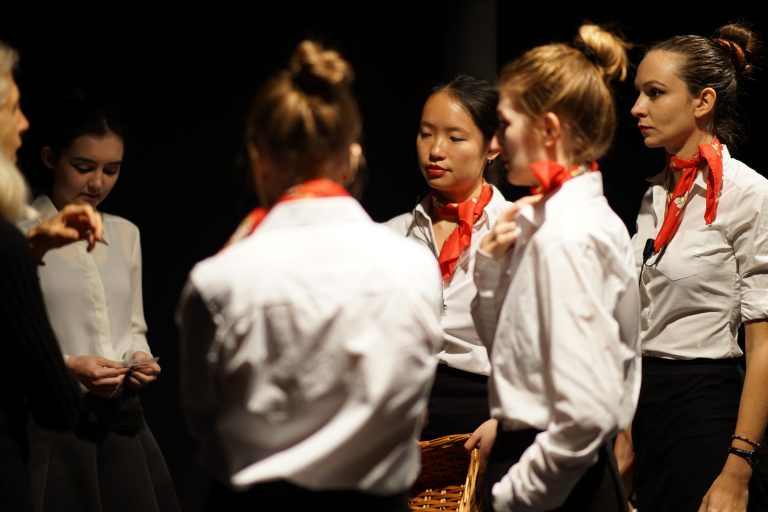By Kalina Todorova
March, 2022
Have you ever wondered what art, activism and education might have in common? The answer is pretty straightforward – they are springboards that spark meaningful discussions. But how do we start and facilitate important conversations if we don’t have the practical skills or are lacking in relevant expertise? How do we make education more creative and art more educational? A new project by Stages at People’s Palace Projects offers the needed tools for this. Through an innovative online platform, the Stages Toolkit puts together a variety of roadmaps which serve as the basis for creating interactive lectures, creative workshops, devised performances, and essentially – are a steppingstone for significant discussions on important key topics and contemporary issues. The best thing? Everyone can use the exercises and resources on the website for free. Whether you are a university professor, an after – school drama facilitator, a group of young activists or students, you can learn how to create interactive events on a topic of your choice.
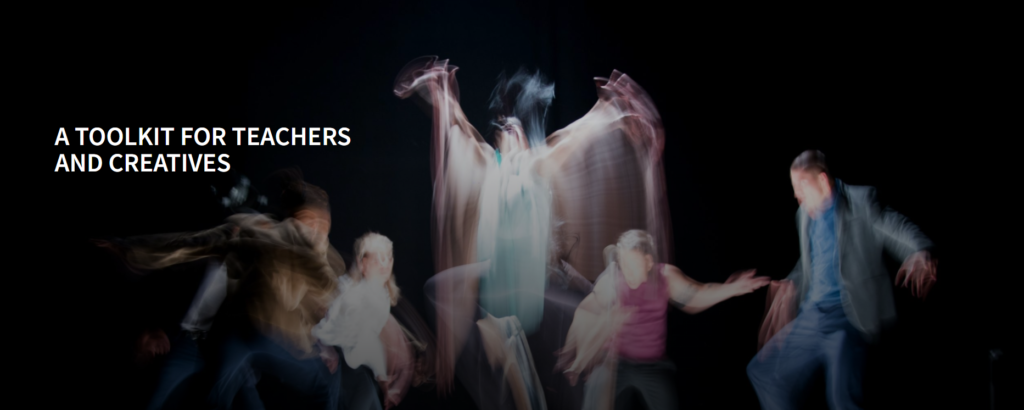
What is Stages?
The Stages network is a long-term initiative led by project director Shana Swiss which began in 2018. It aims to bring together teachers, creatives, and young people in the fields of education, community arts, and social change. The first group, founded in April 2018, is the award-winning Stage 3 Theatre Company. Stage 3 Company and Stages are currently partnering with the Hastings and Rother Arts Education Network to pilot the Stages Toolkit in schools in this region of England. Throughout the past 5 years, Stages has also collaborated with a number of national and international organisations and campaigns, such as Remembering Srebrenica, Safe Passage, Protection Approaches, CARAS and Phosphoros Theatre.
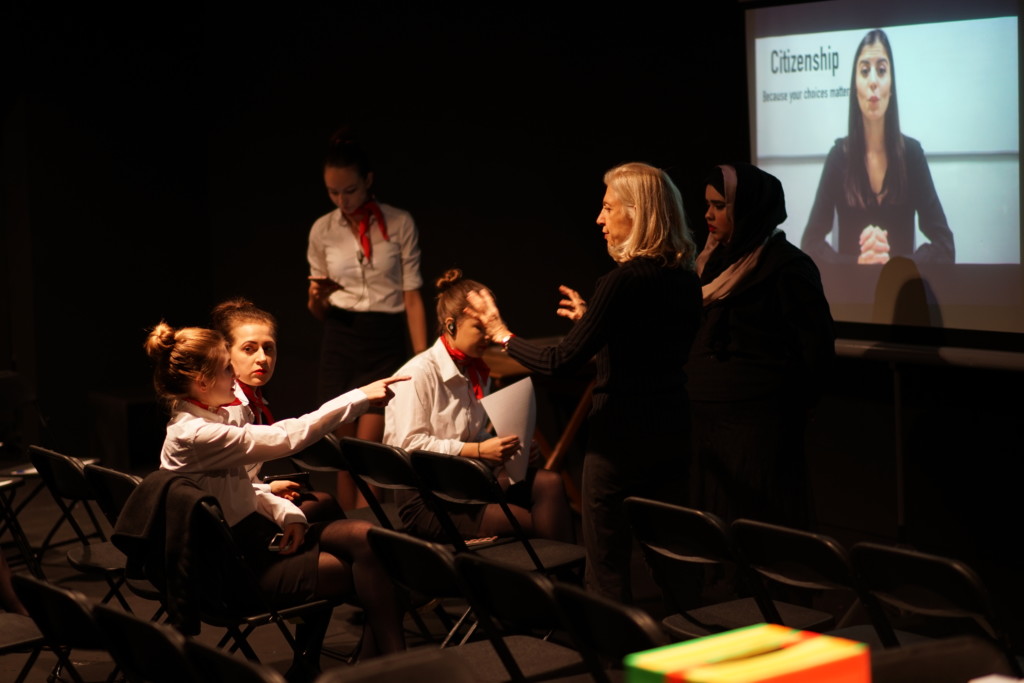
Still image from Stage 3 preparation at a London theatre. Photo: James Thompson
The core mission of Stages is to use the power of theatre and the arts to create spaces for open intergenerational discussions, to inspire citizen activism and community engagement, as well as challenge discriminatory practices and exclusive behaviours. The methodology for creating such events combines creative drama activities with independent research which is specifically aimed at a relevant and urgent topic. The result of this is a participatory experience that has the ability to change attitudes, clarify complex issues and develop concrete solutions.
In 2019 a second QMUL group was formed which included Law students as well as PhD students in English and Drama, and International Relations.
Stages’ first online project during the coronavirus pandemic was with 30 young people of refugee and asylum-seeking backgrounds from 13 countries with two theatre directors and four grassroots organisations. The young people created a short film, Hold Onto Your Hope, that was launched online with Councillors, MPs, staff and community leaders from Wandsworth during Refugee Week in June 2020. This was the beginning of a conversation with decision-makers, expressed through the arts, and the building of confidence among young people to speak about their experience and to influence policies that impact their lives.
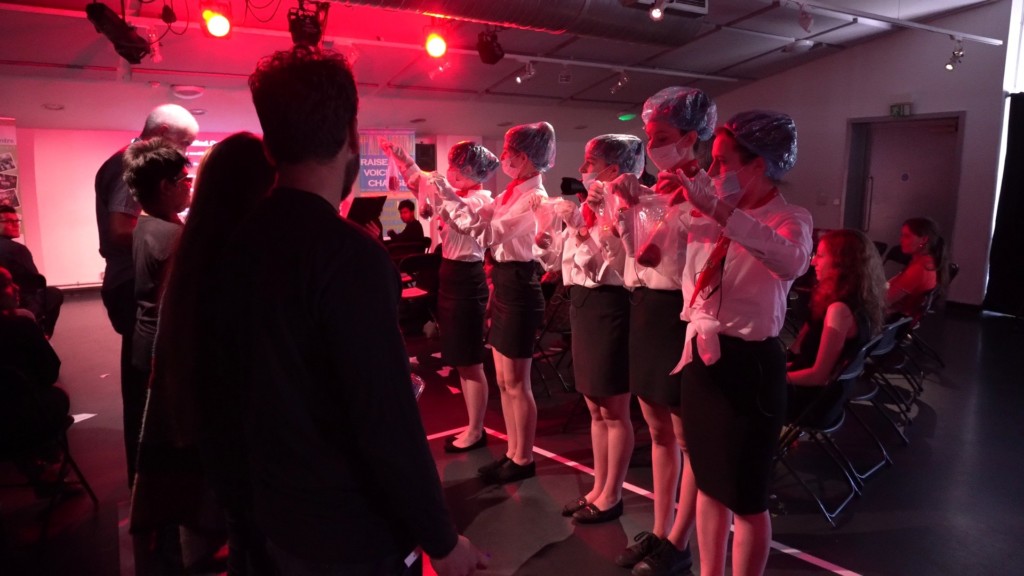
Still image from the first Stage 3 performance at Tafahum festival in Tower Hamlets. Photo: Nigel Eltrinngham
This is also around the time when the idea for the Stages Toolkit was born. Because how does one navigate sensitive topics like belonging, identity, discrimination, and injustice especially with young people? The answer that Stages offers – a carefully constructed discussion through drama activities. The devising (theatre-making) method that was developed with Stage 3 Company was now going to be adapted for an educational framework in order to equip teachers and students with the tools to facilitate such complex discussions but also to make learning more interactive and collaborative. Using a variety of group exercises, storytelling, metaphors and other theatre techniques, users of the Toolkit can learn how to talk about different issues in a way that is comprehensible, productive and most of all, is done in a safe environment with the right approach.
Stages Toolkit
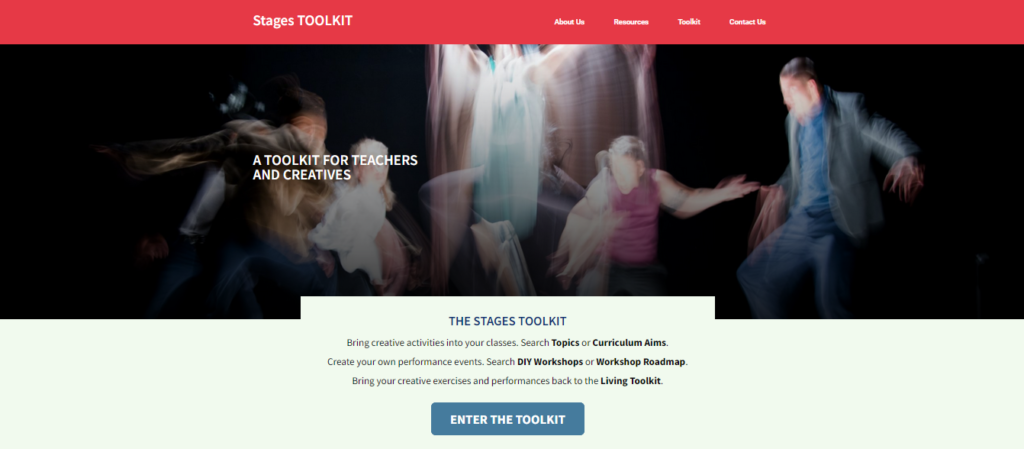
The online Toolkit consists of 5 sections, depending on the type of activity that a user wants to do.
The first section is aimed at Secondary School teachers who want to incorporate an interactive exercise into their class, not only making their lesson more engaging, but also pairing the exercise to match a specific aim from their subject. Currently there are five secondary-school curriculum subjects in the Toolkit – Citizenship, English, Geography, History and Religious Education. Teachers can, however, also choose to browse through exercises on a certain topic from the second section which has seven thematic categories – Belonging, Identity & Diversity, In/Justice, Media & Free Speech, Power, Life Skills and a dedicated category on the 10 Stages of Genocide which has an explanation of the term, background history and a couple of activities to help better understand genocide as an ongoing process with separate stages and to encourage people not to shy away from discussing them.
The third section presents a type of DIY Workshop/Performance in 3 steps.
For those who want to create their own full workshop(s) or performance(s), this section offers 1. Warm-Ups, 2. Research Activities and 3. Drama Exercises. The exercises in these categories can be mixed and matched according to each of the user groups’ needs and aims.
The fourth section is a workshop roadmap, revealing Stage 3 Company’s entire process of creating their first piece Stage 3.
This section not only has 8 ready-to-use workshops, but also the script for the performance and the tech score which have been translated into 7 languages so far. Whether you want to recreate or adapt the show, or use the workshops as a springboard for creating your own performance, this is a good place to start looking for ideas and inspiration.
The fifth section is referred to as the Living Toolkit.
This is where all future contributions to the Toolkit will be included, as well as examples of how people are using it and the work they have created. Ultimately, this section will bring together an online global community of artists and teachers by offering an open space for sharing ideas, new exercises and performance scripts that can be used by others under a non-commercial Creative Commons license.
***
If you have an interest in trying out the Toolkit, know someone for whom it will be useful, or if you simply want to get in touch, please email:
- Shana Swiss ([email protected])
- Kalina Todorova ([email protected]).
